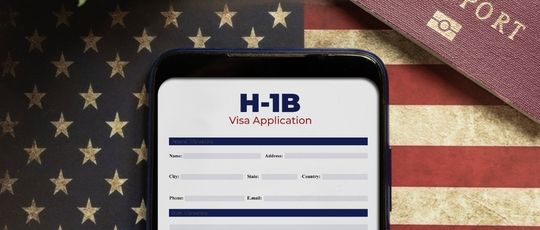For WorldatWork Members
- What Makes Gen Z Valuable to Employers? Workspan Daily Plus+ article
- Address Gen Z Struggles with Targeted Mental Health Benefits, Workspan Daily Plus+ article
- How to Understand What Matters Most to Job Candidates, Workspan Daily Plus+ article
- Pivot on Pay: Getting Creative to Attract and Incentivize Talent, Workspan Magazine article
- Strategic Benefits: How Employee Benefits Can Create a Sustainable Competitive Edge, Journal of Total Rewards article
For Everyone
- What Gen Z and Millennials Want: How to Attract and Retain Them, Workspan Daily article
- How Gen Z is Redefining Total Rewards, Workspan Daily article
- How to Get Gen Z On Board with Employee Benefits, Workspan Daily article
- Gen Zers and Millennials Are Increasingly Rejecting Corporate Loyalty, Workspan Daily article
- Young Workers Opting for the Job-Hop Instead of the Climb, Workspan Daily article
A recent Wall Street Journal columnist’s claim that Generation Z is “unemployable” has sparked debate about what employers should do to equip these young American workers with the professional skills they’ll need to succeed … now and into the future.
The opinion article by Suzy Welch, a book author and faculty member at New York University’s Stern School of Business, asserts — through research she conducted with Becoming You Labs — that the major values prized by hiring managers (loyalty, perseverance, a drive for achievement, and a strong desire to work and learn) are priorities for only about 2% of surveyed Gen Z students.
Instead, she said, most young adults place greater emphasis on self-care, individuality, autonomy, authenticity, flexibility, a willingness to question authority and an interest in helping others.
These findings point to a growing values misalignment between what traditional employers seek and what motivates many Gen Z workers, said Rick Garlick, a partner and senior consultant at research and advisory firm Ipsos BVA.
“[Welch’s] observation is valid,” Garlick said. “Gen Z employees are generally less interested in ‘climbing the corporate ladder’ and more focused on immediate gratification — seeking rapid advancement, high (often unrealistic) salaries and shorter work hours.”
A Growing Problem with a Growing Workforce Segment?
The lack of Gen Z readiness and alignment is a sentiment that’s only hardened since a 2024 study by education analysis company Intelligent.com found 1 in 6 hiring managers expressed reluctance to hire recent graduates, with three-quarters of survey respondents labeling some of all of their Gen Z college grad hires as “unsatisfactory.”
Gen Z currently makes up approximately 18% of the American workforce, according to the Department of Labor’s Bureau of Labor Statistics, having surpassed Baby Boomers in size as of the second quarter of 2024. This percentage is projected to grow to 30% by 2030, as Gen Z is the fastest-growing generational cohort in the labor market.
So, how can total rewards (TR) professionals understand, inspire and/or bend to this growing — yet unique — part of the workforce?
The Intersection of Gen Z and TR
The issue of Gen Z “employability” should be top of mind for TR professionals for a number of reasons, said Gordon Frost, a global rewards solution leader at consulting firm Mercer.
TR, he said, sits at the intersection of attraction, engagement and retention — all areas influenced by Gen Z’s professional preferences: career mobility, financial well-being, benefits for mental health, flexible work and purpose-driven employers.
“Paying attention to Gen Z can reveal gaps in benefit design (e.g., emergency savings, student loan support, mental health access), reward communication and early career pay competitiveness,” he said. “Employers that are slow to adapt risk higher early career turnover, weaker employer brand and higher cost to replace entry-level talent.”
Employers should “absolutely” use proactive guidance to help Gen Z workers better understand an organization’s culture and meet expectations, Frost said, as it can shorten time-to-productivity and reduce early turnover.
“Link early milestones to tangible recognition — such as pay progression, badges, stretch assignments — so expectations have clear outcomes,” he said.
Some organizations are even harnessing artificial intelligence (AI) to provide a culture boost to new workers, said Sue Cantrell, the vice president of products for workforce strategies at Deloitte Consulting LLP.
She noted that one internet retailer, for example, introduced a generative AI culture coach — a model trained on internal documents such as performance reviews and promotion documents — to offer employees feedback and support in navigating day-to-day work interactions and decisions.
“It was developed specifically in response to the need for young people to develop experience and gain mentorship,” she said.
Prepare to Pivot
Overall, organizations should pivot their rewards strategies in real time to reflect shifting market conditions and evolving employee needs, Cantrell said.
“Achieving this level of agility requires hyper-personalization, powered by stronger technology integration, advanced analytics, and enhanced decision-making capabilities among both managers and rewards professionals,” she said.
To amplify this need, Deloitte’s recent 2025 Gen Z and Millennial Survey found only 6% of Gen Zs identify “reaching senior leadership” as a top career goal, but “learning and development” ranks among the top three reasons they choose their current employers.
The survey also found 67% are even building new skills outside of working hours, and focusing on human capabilities like curiosity, creativity, emotional intelligence and problem-solving.
“These are precisely the kinds of adaptable skills that can be applied across multiple roles and industries, redefining what it means to be ‘work ready’ for the next generation,” she said.
And to make the most of Gen Z’s desire to help others, organizations should do more than simply adopt a cause or allow for time off for volunteering, Ipsos BVA’s Garlick said.
“Rather than the corporation deciding what it’s going to contribute toward, find out what’s important to employees and actively find ways to partner with them in these causes,” he said.
‘Quite a Bit of Danger’
With five generations now in the workplace and people working longer than in previous decades, a multigenerational workforce can be an organization’s biggest asset or biggest stumbling block, stated Amelia Haynes, the manager of research and partnership development at the Korn Ferry Institute.
“There’s quite a bit of danger in calling any demographic group out as being singularly unemployable,” she said, adding that Welch’s generalization isn’t accurate.
She said multiple demographic groups can be positively affected by in-house programs such as mentoring and reverse mentoring — for instance, pairing digitally native Gen Z workers with more seasoned employees so younger workers can help older workers navigate new technology, and having older employees teach the younger ones about organizational standards and culture.
Anything that will get groups talking — and more importantly, listening — to each other, is vital, Haynes said.
“We often hear Gen Z is really disengaged, but our research shows them just as highly motivated as others — so we must not be doing a great job listening to each other,” she said.
Editor’s Note: Additional Content
For more information and resources related to this article, see the pages below, which offer quick access to all WorldatWork content on these topics:
#1 Total Rewards & Comp Newsletter
Subscribe to Workspan Weekly and always get the latest news on compensation and Total Rewards delivered directly to you. Never miss another update on the newest regulations, court decisions, state laws and trends in the field.









